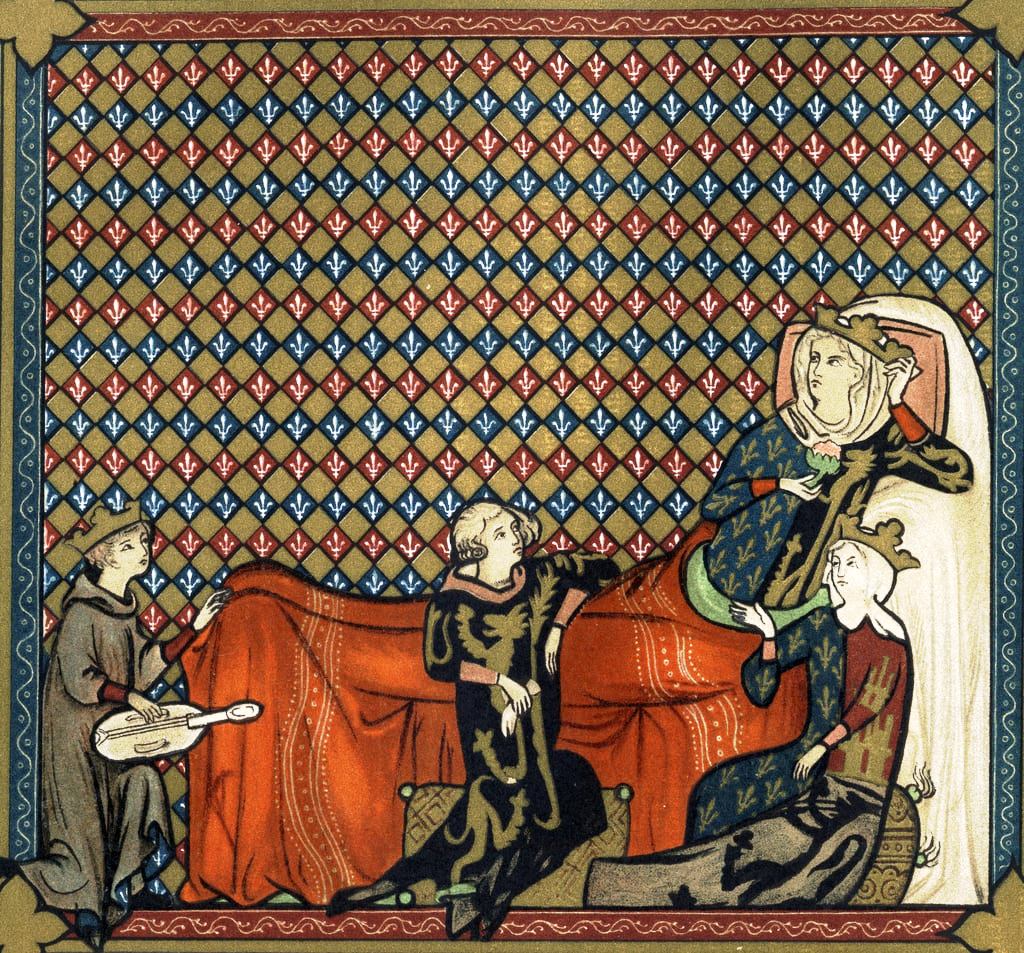Adenet le Roi (c.1235-1297)
Adenet le Roi, literally "Little Adam the King," was a French epic poet born in Brabant, located in the Low Countries. His life and career were influenced by various noble patrons and significant historical events. He received his upbringing and education under the sponsorship of Henry III, Duke of Brabant, who eventually made him his minstrel.
Contents
In 1269, Adenet le Roi entered the service of Guy de Dampierre, who would later become the Count of Flanders. Adenet held the prestigious title of "roi des menestrels" or "King of the Minstrels" during this period.
Crusade to Tunis
Adenet le Roi's most notable adventure was his involvement in the crusade to Tunis in 1270, accompanying his patron Guy de Dampierre. This military expedition, known as the Eighth Crusade, was led by Louis IX of France (Saint Louis) and was aimed at capturing Tunis from the Muslims.
Led by Louis IX of France, later known as St. Louis, this was the third crusade the king had led. Tunis, located in North Africa, was a strategic target because it was seen as a base for Muslim naval power in the Mediterranean. The journey to Tunis was arduous and fraught with difficulties. Crusaders faced harsh weather conditions, disease outbreaks, and logistical challenges. The expedition traveled through Sicily and Italy, and Adenet le Roi's writings provide vivid descriptions of these places. It was a grueling march, and the army suffered heavy losses.
Louis IX succumbed to disease in August 1270, leaving the crusader army without its leader. Command passed to his son, Philip III of France. However, the situation was dire, and it became clear that continuing the campaign without sufficient resources and support was untenable. A truce was reached and the crusaders, with Adenet, returned to Europe.
Works
At the French court, enjoying the patronage of Queen Marie of Brabant, who was married to Philip the III (the Bold). Philip died in 1285 but Adenet remained, protected by Queen Marie when Philip IV (the fair) took the throne.
Adenet le Roi's poetry represents a significant juncture in the evolution of French literature. His works signal the decline of the medieval epic poem tradition in France, known as the "chansons de geste" or "songs of heroic deeds." During a time when the romance of adventure was gaining popularity over epic poetry, Adenet clung to the more traditional role of being a verse historian.
However, in his later works, particularly "Cléomadès," a fusion of both eras emerges. This fusion is evident in his poems through more detailed and realistic descriptive passages, a higher level of imagination and artistry, and a more chivalric treatment of his narratives. Adenet le Roi's surviving works, listed in their likely chronological order, include "Les enfances Ogier," "Berthe aus gran piés," and "Bueves de Commarchis." Notably, these works exist only in copied written form and have not been widely published.
